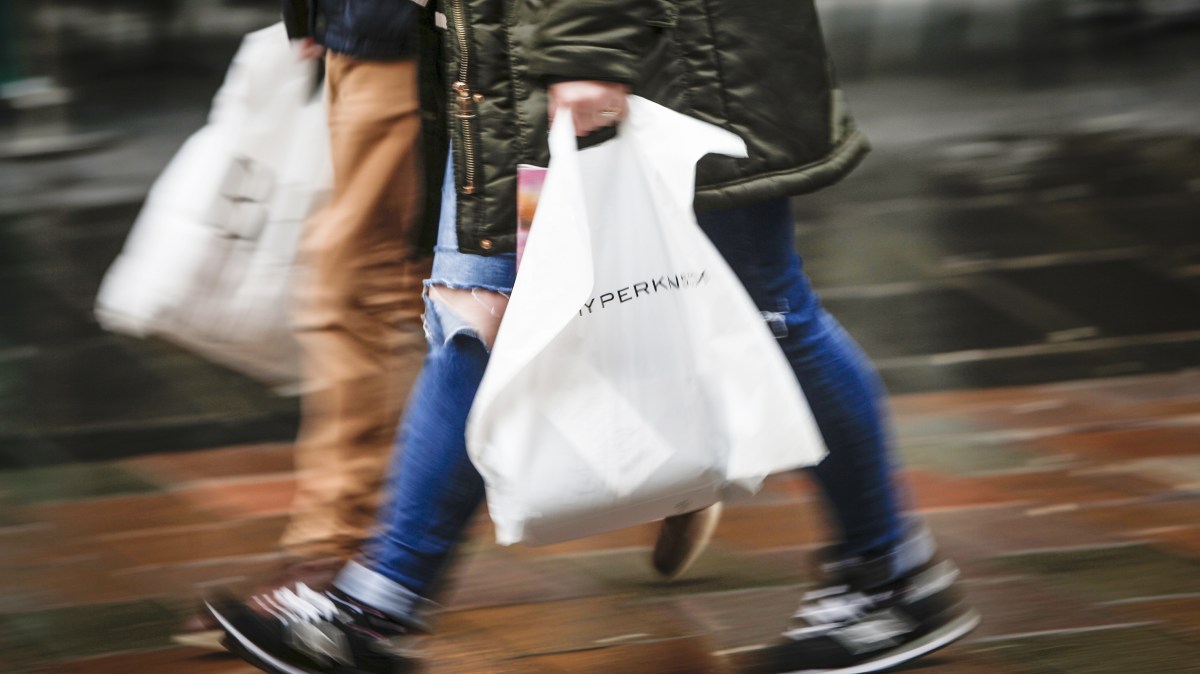Anxieties over looming tax rises at the budget and stormy weather have led to an autumn slowdown in retail sales growth, researchers have claimed.
According to figures published by the British Retail Consortium (BRC) and KPMG on Tuesday, retail sales rose by 2.3 per cent on an annual basis in the five weeks to October 4, down from growth of 3.1 per cent in the previous five weeks. Although slower, the increase was above the 12-month average of 2.1 per cent.
The BRC blamed lacklustre consumer confidence amid fervent speculation about tax increases at the budget on November 26 for the decline in consumption growth. Wet and windy weather is likely to have also played a role, with Storm Amy bringing strong winds across Scotland and the north of England in early October.
In a separate piece of research published this month, the BRC said heavy rainfall may have had a bigger impact than fears about tax rises in driving down footfall and high street sales.
• Business live: the latest on companies, markets and economics
Experts at the BRC also speculated that household spending could be sluggish over Christmas due to a resurgence in the cost of living. The festive period is seen as the “golden quarter” for many retailers as it is when most of them generate enough revenue to tip their businesses into profitability.
“Rising inflation and a potentially taxing budget is weighing on the minds of many households planning their Christmas spending,” Helen Dickinson, chief executive of the BRC, said.
Inflation remained stuck at a 19-month high of 3.8 per cent in July and August, while food prices have climbed by 5.1 per cent over the past 12 months, the strongest increase since January 2024.
The BRC said that food purchases rose by 4.3 per cent annually, down from 4.7 per cent in the previous five-week period. Dickinson said growth in food sales was a reflection of the increased cost of groceries rather than any real-terms surge in demand.
The chancellor is readying a substantial package of tax increases at the budget to offset an erosion in her fiscal headroom. Economists have estimated that tax rises could be as high as £40 billion, which would amount to the same degree of increase announced by Rachel Reeves in her first budget last October.
Retailers were punished by the chancellor’s decision to raise employers’ national insurance contributions by £25 billion in her inaugural budget as they tend to employ a large number of part-time and low-paid staff. The sector has also complained about rising labour costs associated with the 6.7 per cent increase in the minimum wage.
• Autumn budget 2025 predictions: what could Rachel Reeves announce?
According to figures from HM Revenue & Customs, the number of payrolled employees in the UK economy has declined by 150,000 since the October 2024 budget, with most of the job losses in the retail, leisure and hospitality sectors.
The BRC estimated that non-food sales in the five weeks to October 4 — of products such as clothes, accessories, household goods and technology — were up by 0.7 per cent, against growth of 1.8 per cent in the previous month.
Dickinson said that electronics sales accelerated thanks to the release of the new iPhone 17 and Apple Watch in the period that the BRC examined.

The UK launch of the iPhone 17 last month helped to drive up electronics sales
RASID NECATI/GETTY IMAGES
• Is it a good time to invest in Apple?
The BRC data has taken on additional significance amid concerns about the quality of figures released by the Office for National Statistics, which in August delayed the publication of its monthly retail sales figures by two weeks.
Spending goes down the Tube
Spending on public transport has declined at the quickest pace since the lockdown period of the pandemic due to strikes the across London’s Tube network last month.
According to Barclays, spending in this category dipped by 2.6 per cent in September, the steepest decline since March 2021. More than a third of Londoners said the Tube strikes had lowered their monthly expenditure.
The bank also said that overall retail sales fell by 0.7 per cent last month owing to sluggish demand for non-essential items, with spending in this category dropping to a 15-month low.
Amid elevated inflation of 3.8 per cent, consumers raised spending on small luxuries — an economic phenomenon called the “lipstick effect”. Barclays said that consumption of pharmaceutical, health and beauty products leapt by 9 per cent in September.
